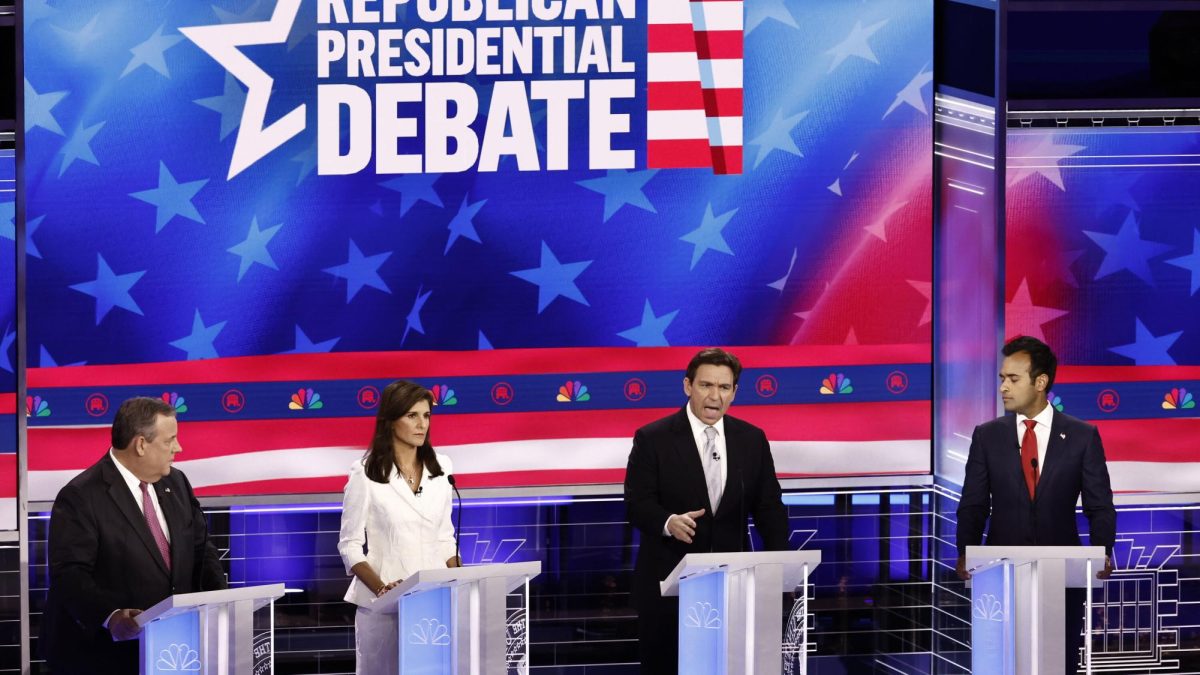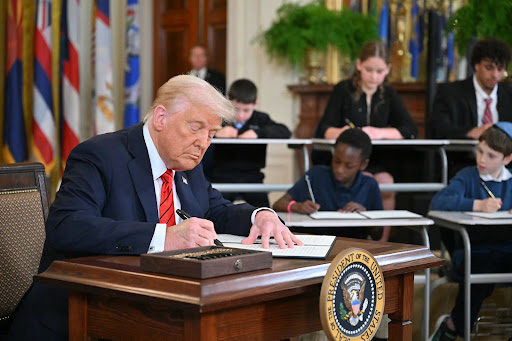On August 23, 2023, in the first Republican presidential primary debate of this election cycle, four of the eight candidates on stage admitted that they had plans to shut down the Federal Department of Education (ED) if elected. Although former president and 2024 presidential candidate Donald Trump did not attend the debate, he has expressed similar goals throughout his campaign, solidifying a common GOP stance that the Department of ED is ineffective and unnecessary.
The Federal Department of ED is responsible for supervising the curriculum of U.S. public schools and creating education, health, and safety standards for them. Without the Department of ED, there would be no nationwide regulation of educational standards or school environments.
As evidence of the Department of ED’s failures, many Republican critics point to a recent statistic from the National Assessment of Educational Progress that suggests that American children have the lowest reading and math comprehension scores in decades.
During the August debate, the moderator asked now-former GOP candidate Vivek Ramaswamy how he would deal with the “educational crisis” posed by these low test scores, and Ramaswamy responded that he would “shut down the head of the snake the Department of Education.” He went on to say that the funding devoted to the Department of ED should be distributed directly to American parents for their children’s education.
Physics teacher and Brooklyn Tech chapter leader of the United Federation of Teachers Mr. Thomas Duncan, took issue with what he saw as Ramaswamy insinuating that teachers are less competent than parents in deciding what should be taught.
“As an educator who [teaches] as a profession, I think it’s unfortunate that people believe that it requires no particular training, skill or practice in educating people,” Duncan said. When asked whether this funding would be impactful for families, Duncan noted that “Income disparities are related to educational outcome,” which is a connection Ramaswamy failed to explain.
Law and Society major Téa Cuozzo (‘25) believed that giving out some of the Department of ED’s budget to parents would be beneficial for closing the gap that income disparity creates in education by giving lower-income families an economic advantage. While she believes the Department of ED is necessary for “education to be sufficient,” she also believes that it deserves only the money it needs and that the rest should be distributed where she believes it could be more impactful. “Giving money to parents for education lets families choose the best school for their kids.” This money would potentially allow more students to attend schools that meet their needs.
Mr. Duncan, however, views this plan differently. “It depends on what the purpose of the funding is,” he said. “I don’t know if giving that money and just saying ‘this is for educating your child’ is necessarily going to get you good outcomes.”
Republican candidates’ opposition to the Department of ED can largely be attributed to left-wing biases they feel exist in public education. After now-former presidential candidate and governor of Florida Ron DeSantis signed legislation to prevent the teaching of College Board’s AP African American studies, he said, “We will not let the far-left woke agenda take over our schools and workplaces. There is no place for indoctrination or discrimination in Florida.” DeSantis has also expanded and created laws to ban critical race theory and LGBTQ+ topics through the ‘Don’t Say Gay’ bill and the effective ban on AP Psych, from the Florida curriculum.
For students like Isabelle Ross (‘26), DeSantis’ restrictions in defense against perceived indoctrination seem hypocritical. “I don’t think [indoctrination happens] so much in New York, but in other states probably since there are bans on books and other materials,” said Ross.
Mr. Duncan has concerns about what shuttering the Department of ED would mean for education in America. “You’re taking money out of a public system… [and] instead funneling that money into potentially for-profit organizations,” said Duncan.
That money would subsequently fund the values and missions of the schools competing for defecting parents and students, and this competition risks losing sight of the public necessity of education.
Of the remaining presidential candidates, only Donald Trump has expressed intentions to abolish the Department of ED. His remaining Republican rival, Nikki Haley, believes parents deserve a more significant role in their children’s education but has not shared plans to shut down the Department of ED if elected.
Abolishing the Dept. of ED would take an act of Congress and require reorganization of the department’s functions. While there is a possibility that the end of the Department of ED may soon come, the fate of the department will not be clear until the September election.







































